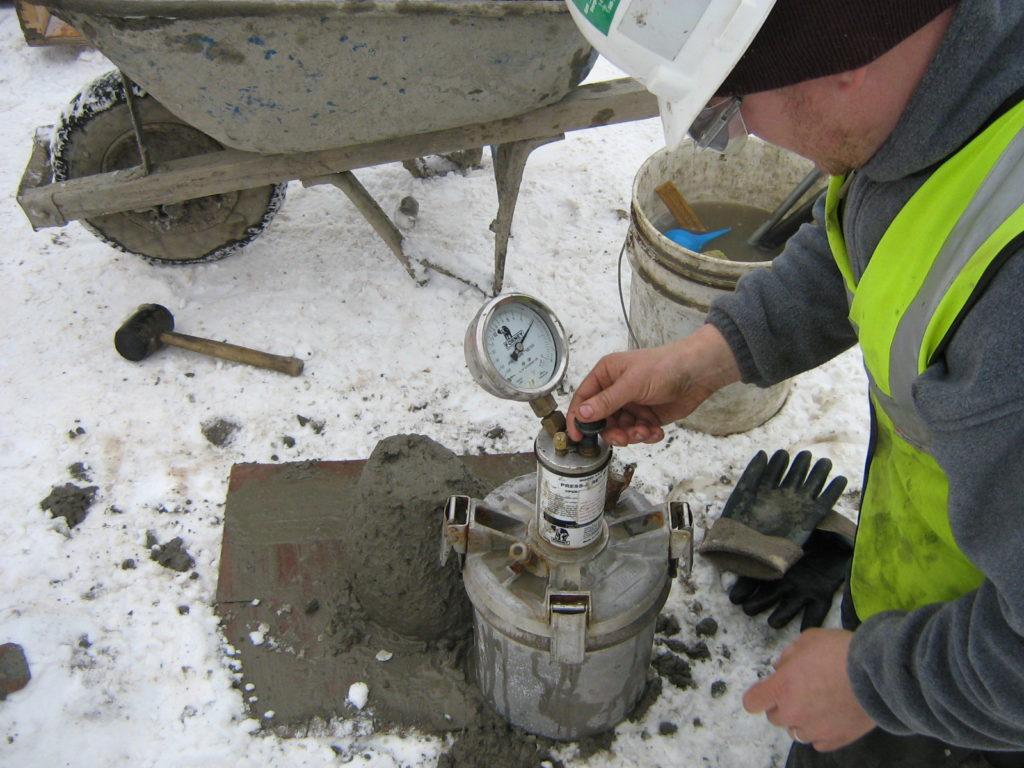Products must endure particular conditions and meet increasingly complex national and international building standards and regulations for them to be accepted by consumers. To ensure a construction project’s long-term success and safety, it is essential to conduct construction material testing.
CMT can show a slew of problems with a building’s quality construction. It can help identify potential hazards, categorize a construction site, and assist with engineering decisions. As a result of the lack of CMT, construction projects could be delayed, materials could be of lower quality, and engineers and builders would be exposed to increased liability risks and shorter asset lifespans.
With Construction Material Testing, builders can feel confident in their products and realize that they utilize the proper materials needed for the project.
What is Construction Material Testing?
Construction Material Testing, or CMT, is the process by which materials are tested before utilizing them to build a new project, add to an existing project, or modify a current project. The spectrum of services required for a thorough CMT process varies substantially depending on the project, the land, and the complexity of the services.
Do material testing services have the potential to help your construction business?
Yes, a third-party company that offers construction material testing services can give your business wonders. It is the responsibility of material and semi-finished product suppliers to ensure the durability and long-term quality and performance of the items they produce and supply to their clients.
Product testing and certification guarantees manufacturers, landowners, and builders that the building materials used in their projects fulfil these quality, safety, and environmental sustainability criteria. Thus, benefits can be apparent to your business through the help of this type of company.
These companies tests yourmaterials for a faster time to market ratio by adhering to globally accepted regulatory criterias and standards. Using the firms’ unbiased and independent testing services, you may reduce your exposure to regulatory fines and legal risks.
With an independent third-party certification, your firm will achieve a competitive advantage by improving product quality, safety, and increasing customer trust in your goods and brand. With product testing and certification, you can limit the risk of expensive and image-damaging product recalls that may harm your brand’s reputation.
Types of Construction Material Testing
Field or On-site Testing

Tests are carried out on-site or in the field. Industrial projects such as utilities, transportation infrastructure, and airports rely heavily on on-site field testing.
Non-destructive testing and visual evaluations are the two main components of on-site testing. Examples of building materials tested in the field include soil foundations, steel structures, and retaining walls.
Laboratory Testing
To complete a thorough CMT routine, lab testing is required once field testing reveals the need for additional investigation. In cases when field testing is inconclusive, samples of materials are gathered and delivered to a laboratory for testing and examination.
If you need to know the physical and mechanical makeup of a material, you may employ laboratory testing. Soil PH testing, concrete compression rate testing, and other procedures.
What are the Construction Materials that need to be tested?
Bricks
When it comes to supporting your building, bricks are known as load-bearing materials Bricks used in construction must be tough and long-lasting since flimsy ones may crumble a building in years or even months.
A civil engineer must submit a sample to a building materials laboratory to guarantee low-quality bricks are not utilized in construction. This is an excellent test to see whether the bricks can endure natural disasters.
Cement
Many materials are utilized in building, and cement is one of the most prominent. A few tests are carried out in a laboratory to guarantee that the cement is strong enough to maintain the structure.
A fineness test is performed to determine the grain size of the cement, after which various procedures are employed to confirm that the cement is of excellent quality.
A consistency test is carried out to determine how much water is needed to turn the cement into a paste.
Concrete
Modern constructions cannot be produced without the use of concrete. It is common for civil engineers to carry out several concrete tests to assess the quality and suitability of a given project.

Slump testing ensures that the concrete meets the specifications specified in the mix design. A thorough examination of the concrete’s overall strength is carried out to identify any potential fractures. The water permeability test determines how long the concrete will last.
Soil
In civil engineering, soil testing entails doing an in-depth investigation of the soil to determine whether it has a dry or wet foundation. It is up to the engineer to decide to continue or abandon the project based on the results.
The foundation of a building may sink or degrade completely without soil testing, resulting in the collapse of the whole structure. As a result, the first reports of the soil inquiry must be in accordance with the laboratory analysis of the subsurface soil.
Rocks
When it comes to construction, rocks are by far the most often utilized building material. The majority of foundations are made of rocks. As a result, the quality of the stones utilized in the construction must be exceptional.
The three kinds of rocks that may be used are igneous, sedimentary, and metamorphic. A civil engineer would conduct a variety of tests to determine the type of rock in question and decide on its electrical resistivity, which is critical in preventing electric shocks from occurring during construction.
Stones are also subjected to durability and slaking tests to verify that they will not crumble if exposed to water.
Aggregates
Pavement construction relies on the use of aggregates. Aggregates have a significant impact on the load-transfer capabilities of pavements. Hence it is essential to evaluate them before application fully. They are assessed for their strength, toughness, hardness, water absorption, and form.






